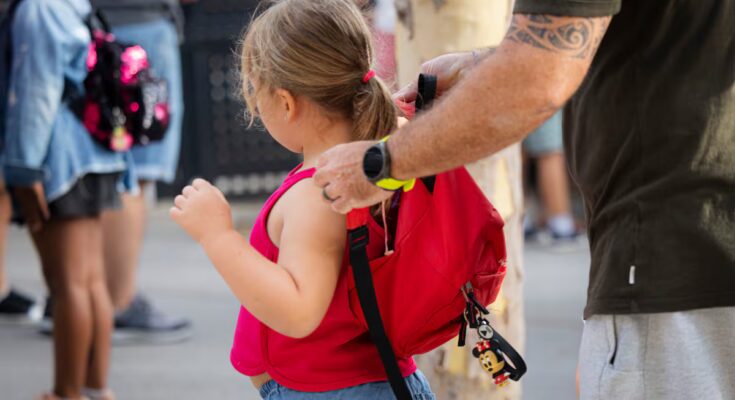The inequality that has been established between the Catalan and Spanish populations despite the good performance of the economy in macroeconomic terms, means that poverty has become chronic and unusual situations have been reached: not only does having a job not prevent poverty, but not even the most basic social benefits are able to lift vulnerable families out of deprivation. Two reports from Ivàlua, the Generalitat’s public policy evaluation agency, conclude that the Guaranteed Citizenship Income (RGC) is far from achieving its objectives, especially as regards minors and women. In reports, Ivàlua warns that two out of three families with children receiving the benefit continue to live in severe poverty despite having this help, and that women who receive it suffer more vulnerable than men. The Generalitat promotes a reform of the RGC so that it reaches more people and is compatible with other aid and situations, but the CC OO union considers it insufficient and calls for “urgent” measures.
The two Ivàlua reports analyze the benefit in the period between 2021 and 2023. Mirnaya Chabas, head of Social Protection of the CC OO of Catalonia, explains that little has been done since then to improve the situation reported in the reports, despite the Government having an ongoing legal reform of the RGC, recently passed through the Consell de Treball, Econòmic i Social de Catalunya. The report that analyzes it from a gender perspective indicates that poverty affects women more than men due to structural causes such as their responsibility for caring for the family, and this is found in the RGC: 55.4% of the beneficiaries are women. One of the aspects highlighted by the report is that women who receive this help have “disincentives to access the labor market”, as they are afraid of losing the benefit. One of the proposed reforms of the law fits in this sense, namely that the RGC is compatible with income from work up to a certain limit, so that a more progressive transition is possible. In her report, Ivàlua highlights that in the case of women, the RGC “protects against extreme vulnerability, but is insufficient to be able to access some essential goods and services to guarantee a dignified life”. This is mainly due to the increase in the cost of living and housing which is not compensated by the amount of the benefit.
In the report on RGC from the point of view of children and adolescents, Ivàlua’s conclusions are very serious. The agency believes that the amount of the benefit “is adequate for smaller families but is not sufficient for larger families, with more than three members, where minors usually live.” The result is devastating: once receiving the subsidy, only 4.4% of families without children remain in serious poverty, while in the case of families with children, 66% remain in serious poverty. That is, the subsidy does not work as a vehicle to escape poverty in the case of families with children.
Being in severe poverty, a situation in which more than 167,000 minors found themselves in Catalonia in 2023, means that the family income is less than 697.79 euros. Child poverty in Catalonia, which affects 26.74% of minors (one minor in four is below the poverty threshold), is seven percentage points higher than the European average. Severe poverty, which affects 12.35% of minors, is 5.5 points higher than the European average. The report criticizes, among other things, the confusion between RGC and Minimum Living Income, the lack of elasticity of the benefit for families with multiple children and that the coverage of the Catalan subsidy is insufficient with respect to all minors who could receive this help.
The Generalitat created the Guaranteed Citizenship Income in 2017 following a popular legislative initiative that achieved two major goals: Parliament voted unanimously in favor of this benefit and its establishment as a subjective right. That is, from that moment on, the right to receive aid was recognized to anyone who met the requirements. This innovation, which was supposed to unify social assistance and broaden the scope of coverage, was systematically ignored: in previous reports Ivàlua had underlined that RGC coverage barely exceeded 40% of families who are entitled to it. According to data from last September, in Catalonia there are 136,343 beneficiaries of the RGC, but in Catalonia 24% of the population, around 1.92 million people, are below the poverty line, according to the Arope rate.
The RGC has been subsidiary to the Minimum Living Income since this state benefit came into force in 2020. This means that families who ask for help get the IMV first and then, if they meet the requirements, they get the RGC until the total amount of the two benefits reaches the limit set by the Catalan aid (ranging between 778.49 euros for a family with one person and 1,416.86 euros for families with more than five people).
The implementation was slow and complicated and was even sued by potential beneficiaries who saw their requests rejected. There have also been episodes such as the denunciation by the Generalitat of undue payments made due to the slowness and disorganization of the system. The Minister of Social Rights, Mònica Martínez Bravo, tried to address all these problems first by promoting an amnesty for people who had to repay money for benefits paid to them wrongly; and secondly, promote a legal reform of the RGC so that it is compatible with income from work up to a limit – family income must not exceed, between aid and salary, 1,550 euros per month – and so that the benefit can reach more people.



